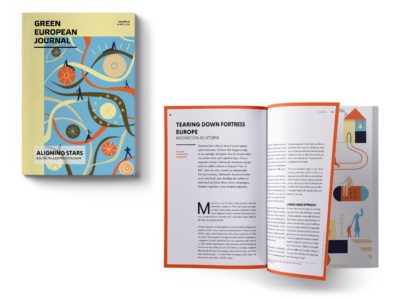Strategic migration control and ongoing negotiations over Kosovo complicate Serbian perceptions of EU accession, despite rising fears of environmental damage and youth violence.
No one was alarmed when less than half of Serbians from last year’s government poll said that they would vote for their country to join the European Union. Media coverage was negligible. No politician voiced an opinion. Not even the Ministry for European Integration, which ran the annual survey, was concerned that, for the first time, only 43 per cent of those polled supported the accession bid. How has Serbian society arrived at such a point of indifference about its biggest political, strategic goal?
The complexity of this issue makes it difficult to answer the above question with certainty and convincingly. However, two reasons are clear.
Rather than suddenly plummeting, Serbian attitudes to EU membership have shown a steady decline in the polls. Over the past decade, Serbian media, under strong governmental influence, has often portrayed the collective West in a very negative light, while Russia and China have been presented in an overwhelmingly positive way.
On many occasions, President Aleksandar Vučić and other officials have depicted the EU as an endlessly demanding, arrogant entity that cannot be satisfied. In truth, however, Serbian reforms, necessary for accession, are being stalled and earlier advances are even regressing in many policy areas. Administratively, the process is still active, but, in practice, it has been sliding backwards for a very long time.
The second key reason that Serbian citizens reject the EU comes from the Union itself and its stance towards the Serbian government. Look up any internationally recognised index on democracy, media and other free speech channels, corruption, or the rule of law, and you’ll see Serbia endlessly falling down the charts. Look at the Serbian government’s love of not very democratic countries, like Russia and China. Look at the reports of local civil sector organisations on the legality and fairness of Serbia’s elections. It is not a pretty picture, and it is getting worse by the day.
Yet the EU consistently supports Vučić’s government, publicly and directly. Its own agendas lurk behind this enthusiasm. One blatant strategic exchange concerns several tens of thousands of migrants in Serbia retained before reaching the Union. And Kosovo remains a key focus of EU intervention. While Serbia is pressuring to regain its influence over Kosovo, the EU and the US want to normalise relations between Serbia and Kosovo. Given that Russia and China are largely behind Serbia on this issue in the UN, it seems evident that the EU will continue exchanging its support for the Serbian government in return for every small step that helps the negotiation process move forward.
Such concessions confuse and disappoint the average EU-supporting Serbian. Meanwhile, those voters who stand firmly behind nationalistic slogans, carefully fed by pro-government media, consider Kosovo to be rightfully Serbian and Russia and China to be solid friends.
Despite these split loyalties, Serbian citizens unite around certain issues. Threats to the environment, equally important to all societal groups regardless of their political persuasion, provoked a series of demonstrations between 2019 and 2022. As a result, the government had to shelve its plans for lithium mining in the Jadar valley. Chapter 27 of the EU acquis regarding environmental protection is one of the highest reform hurdles for prospective members of the Union. However, when the citizens of notoriously polluted Serbia rose in protest, the EU, caught between its political interest and what it professes, was conspicuously silent. Only NGOs, with which possess little influence, mentioned the regulation.
When a boy killed nine of his classmates and a guard at a Belgrade school on 3 May 2023, the focus shifted. Just one day later, a young man killed nine young people and injured 12. The massacres incited uprisings and demonstrations, pushing issues of environmental protection into the background; society suddenly had more immediate issues to resolve.
Seen as the entity that supports whatever the Serbian government does, the EU is barely mentioned in debates on how to ensure that such violence never happens again. Even though its democratic values could be seen as critical to this issue, the EU is failing to convince Serbian society of its relevance.

